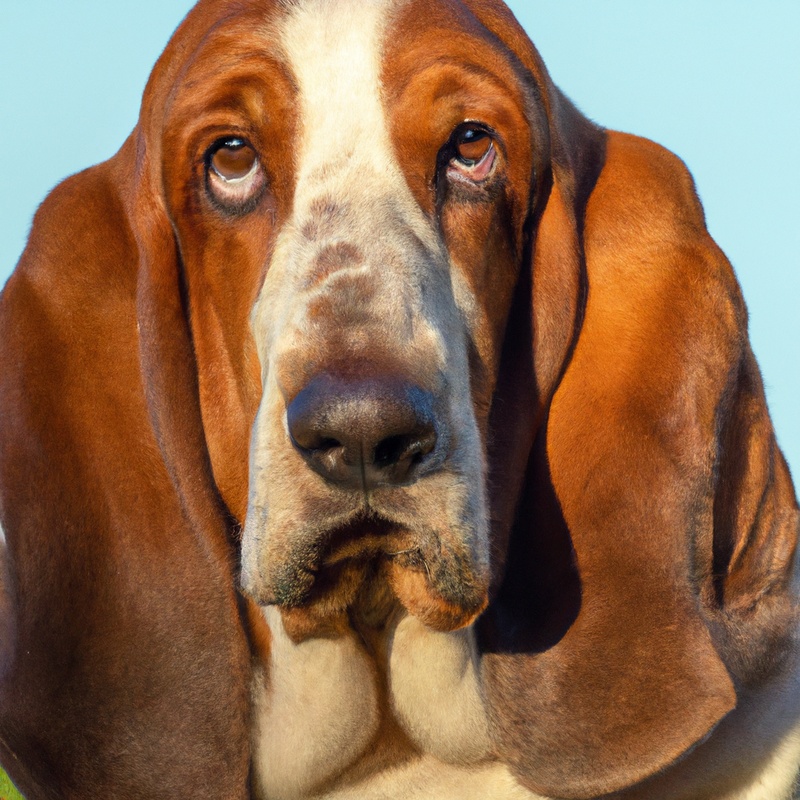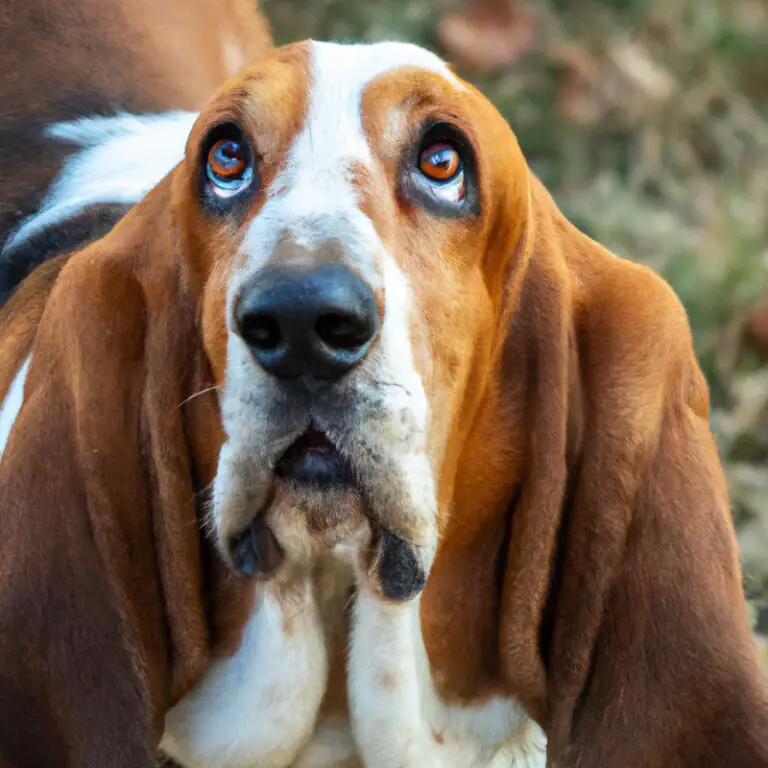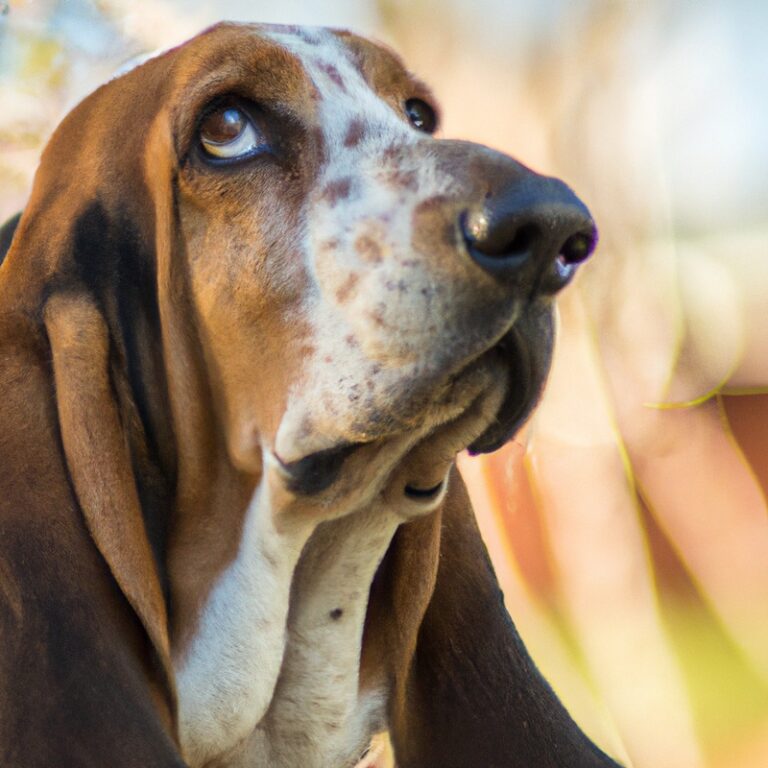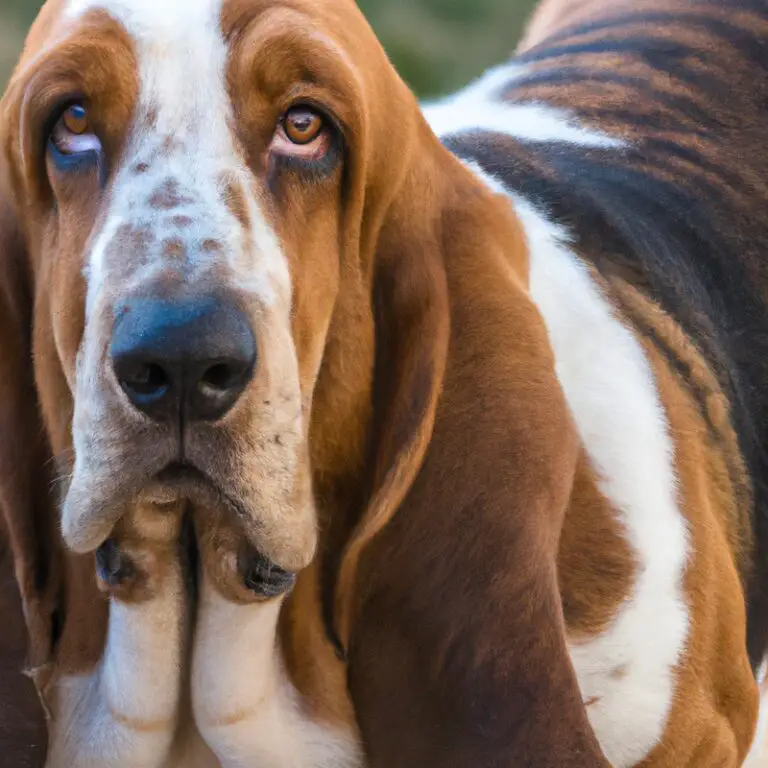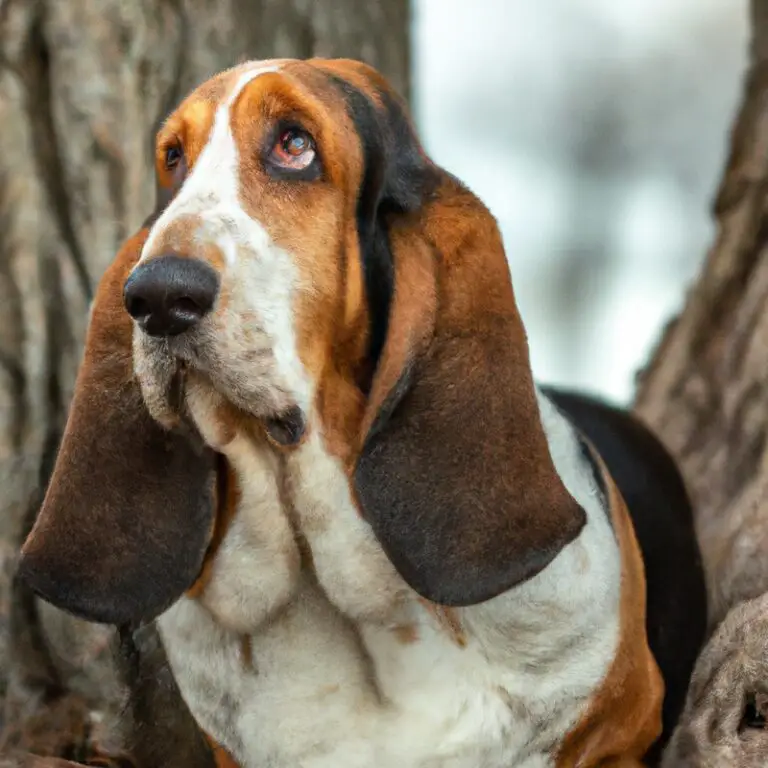Do Basset Hounds Have a Strong Protective Instinct?
Key Takeaways:
- Basset Hounds possess a moderate protective instinct.
- They are more likely to bark to alert their owners than to engage in physical protection.
- Basset Hounds are generally friendly rather than aggressive towards strangers.
- Proper socialization and training can help enhance their protective qualities.
Are you curious to know if Basset Hounds make great protectors?
Picture this: a loyal and dedicated companion, with droopy ears and soulful eyes, standing guard to protect their loved ones.
But do Basset Hounds possess the protective instinct that some other breeds are famous for?
As an expert in dog behavior, let me take you on a journey into the world of these charming hounds.
We’ll explore their unique characteristics, delve into their natural instincts, and uncover whether or not Basset Hounds have a strong protective streak.
Get ready to discover the fascinating world of Basset Hounds and their protective nature.
Understanding Basset Hounds
Basset Hound breed characteristics
Basset Hounds are a unique breed known for their distinct physical characteristics.
They have a long body, short legs, droopy ears, and a wrinkled face.
Their coats are short and dense.
Bassets are medium-sized dogs, typically weighing between 40 and 65 pounds.
They have a keen sense of smell and are excellent trackers, making them great hunting dogs.
Bassets are also known for their friendly and laid-back personalities, although they can be stubborn at times.
They are generally good with children and other pets.
Bassets require regular exercise to prevent weight gain.
Their iconic appearance and lovable nature make them a popular choice for dog lovers.
Basset Hound temperament
Basset Hounds have a friendly and laid-back temperament that makes them great family pets.
They are known for being gentle, patient, and good-natured.
Basset Hounds typically get along well with children and other pets.
They are not known to be aggressive or overly protective.
However, they can be stubborn and independent, which may make training a bit challenging.
Despite this, their affectionate and easygoing nature makes them a beloved breed among dog lovers.
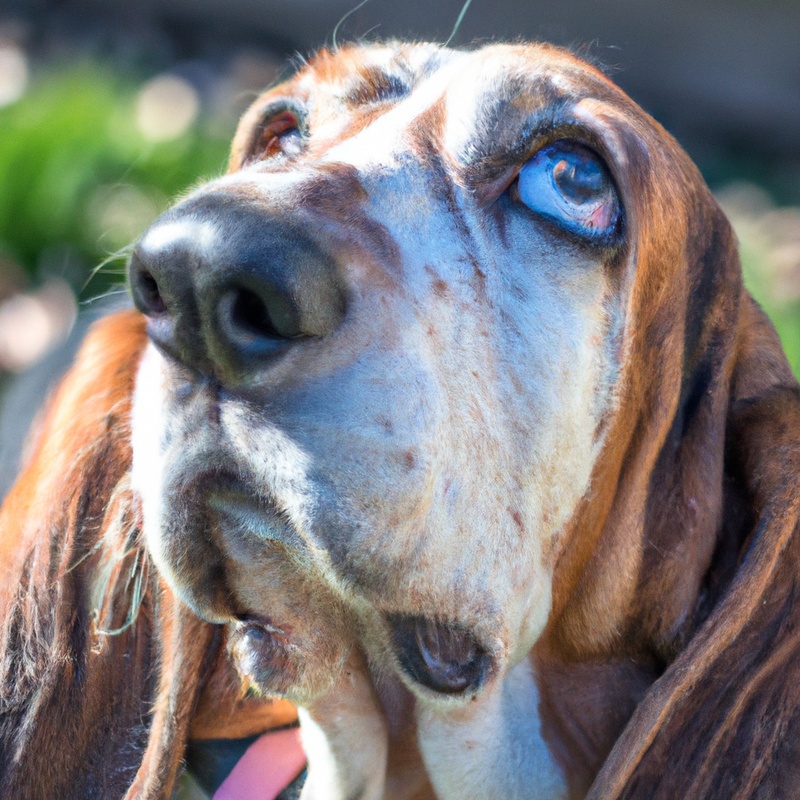
Lifespan and size of Basset Hounds
Basset Hounds have a lifespan of around 10-12 years on average. However, with good care and a healthy lifestyle, some Bassets have been known to live up to 14 years! In terms of size, Bassets are medium to large dogs.
They typically weigh between 40-65 pounds (18-29 kg) and stand about 13-15 inches (33-38 cm) tall at the shoulder.
Their long bodies and short legs give them a distinct and adorable appearance. It’s important to note that individual Basset Hound sizes may vary slightly.
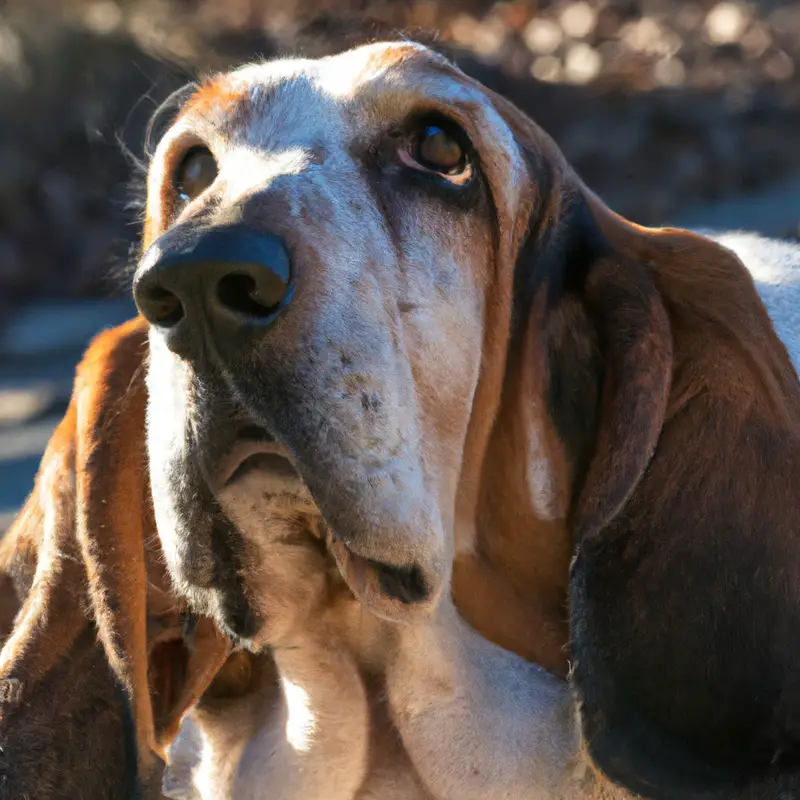
Protective Instinct in Dogs
What is a protective instinct in dogs?
A protective instinct in dogs is an innate behavior that drives them to protect their family or territory. It is a natural instinct that varies in intensity among different breeds and individual dogs.
Dogs with a strong protective instinct will display behaviors such as barking, growling, or even physically intervening when they perceive a threat.
This instinct is rooted in their ancestors’ roles as guardians and hunters. It is important for dog owners to understand and manage their dog’s protective instinct to ensure a safe and harmonious environment.
Factors that influence a dog’s protective instinct
Several factors can influence a dog’s protective instinct. Genetics play a role, as some breeds are naturally more protective than others.
Early socialization and training also play a crucial role in shaping a dog’s protective behavior.
Dogs that have been exposed to various people, animals, and environments from a young age are more likely to have a healthy protective instinct. Additionally, the dog’s environment and past experiences can impact their protective tendencies.
A dog who has been exposed to threatening situations may develop a stronger protective instinct.
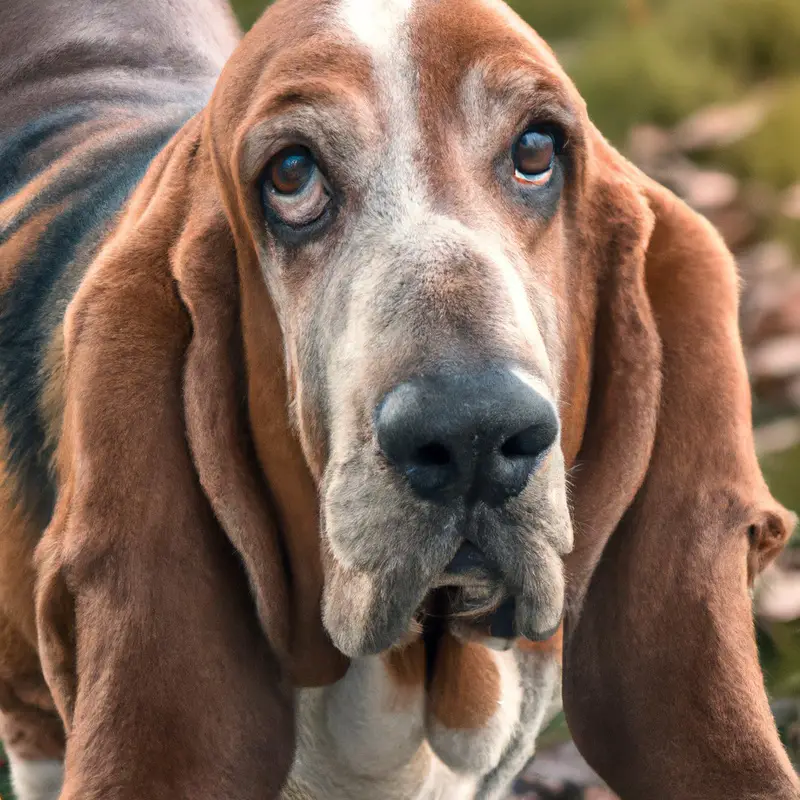
Do Basset Hounds Have a Protective Instinct?
Basset Hound’s natural instincts
Basset Hounds have natural instincts that are important to understand. These instincts are deeply rooted in their genetics and can influence their behavior.
One of their strongest instincts is their sense of smell, which is one of the best among all dog breeds.
They were originally bred for hunting purposes, specifically tracking small game like rabbits and hares. They also have a strong desire to explore and follow scents, which can sometimes lead to them wandering off if not properly supervised.
Basset Hounds are also known for their stubbornness, which can be attributed to their independent nature.
Understanding these natural instincts can help you better care for and train your Basset Hound.
Behaviors that indicate a Basset Hound’s protective instinct
A Basset Hound’s protective instinct is often shown through certain behaviors. Here are some indications that your Basset Hound is exhibiting their protective nature:
- Alertness: Basset Hounds with a protective instinct will be highly alert to their surroundings, constantly scanning for potential threats.
- Vocalization: They may bark or howl when they sense danger or unfamiliar people approaching their territory.
- Body Language: A Basset Hound showing their protective instinct may display a stiff posture, raised hackles, and a focused gaze toward potential threats.
- Protective of Family: They will show loyalty and protectiveness towards their family members, often standing between them and potential danger.
- Warning Growls: If they feel threatened, Basset Hounds may emit low growls as a way to ward off potential threats.
Remember, each Basset Hound is unique, and their protective instinct levels may vary. These behaviors should be observed and understood in the context of their overall temperament and training.
Situations where Basset Hounds may exhibit a protective instinct
Basset Hounds may exhibit a protective instinct in various situations.
Here are a few examples:
- Protecting their family: Basset Hounds are loyal and may show protective behavior towards their human family members.
- Guarding their territory: Basset Hounds can be protective of their home and may bark or growl to ward off intruders.
- Protecting other animals: These dogs may display protective behavior towards other animals in their household, such as other pets or livestock.
- Protecting their food or toys: Basset Hounds can be possessive of their belongings and may exhibit protective behavior if they feel their resources are threatened.
- Protecting their puppies: Basset Hound mothers can be highly protective of their puppies, ensuring their safety and well-being.
It’s important to remember that each Basset Hound is unique, and not all dogs will exhibit a strong protective instinct.
Training Basset Hounds’ Protective Instinct
Importance of training a Basset Hound’s protective instinct
Training a Basset Hound’s protective instinct is vital to ensure their behavior remains balanced and well-controlled.
By providing the appropriate training, you can teach your Basset Hound to distinguish between real threats and non-threatening situations, preventing them from becoming overly protective or aggressive.
This training also helps establish clear boundaries and reinforces your role as their leader, which can result in a well-adjusted and obedient pet.
With consistent training and positive reinforcement techniques, you can shape your Basset Hound’s protective instincts in a positive way and ensure they are a reliable and trustworthy companion.
Steps to train a Basset Hound’s protective instinct
To train a Basset Hound’s protective instinct, there are several steps you can take.
- Start with basic obedience training: Teach your Basset Hound commands like sit, stay, and come. This establishes you as the leader and builds their confidence.
- Introduce socialization: Expose your dog to different people, animals, and environments from a young age. This helps them learn to distinguish between friend and foe, and become comfortable in various situations.
- Use positive reinforcement: Reward your Basset Hound when they exhibit protective behaviors, such as alerting you to strangers or unusual sounds. This reinforces their instinct and encourages future protective actions.
- Provide mental and physical stimulation: Engage your dog in activities like puzzle toys, obedience games, and regular exercise. A mentally and physically stimulated dog is more likely to be alert and responsive to potential threats.
- Seek professional help if needed: If you’re facing challenges in training your Basset Hound’s protective instinct, consider consulting a professional dog trainer or behaviorist. They can provide guidance tailored to your specific situation.
Common challenges in training a Basset Hound’s protective instinct
Training a Basset Hound’s protective instinct can come with its challenges. One common challenge is their stubbornness, as Basset Hounds are known to be independent thinkers.
They may resist commands or training techniques, making it harder to establish the desired protective behavior.
Additionally, their friendly nature can sometimes make them too trusting of strangers, leading to difficulties in teaching them when to be protective. Another challenge is managing their deep loyalty to their family, as it can result in overprotective behaviors towards visitors or other animals.
Patience, consistency, and positive reinforcement techniques are key when training a Basset Hound’s protective instinct.
Tips to Encourage a Basset Hound’s Protective Instinct
Positive reinforcement techniques
Positive reinforcement techniques are highly effective in encouraging a Basset Hound’s protective instinct. When your Basset Hound displays protective behaviors, such as alertness or barking, positively reinforce their actions with praise and rewards.
This will reinforce their natural protective instincts and encourage them to continue exhibiting these behaviors.
Consistency is key, so always reward your Basset Hound immediately after they demonstrate the desired protective behavior. Remember to use treats, toys, or words of encouragement to reinforce their protective instincts in a positive and loving manner.
Providing socialization opportunities
To encourage socialization in your Basset Hound, it’s important to provide them with opportunities to interact with different people, animals, and environments.
Expose your Basset Hound to various situations such as walks in different neighborhoods, trips to the park, or visits to friends and family.
Organize playdates with other dogs, enroll your Basset Hound in obedience classes, or join a local dog club or group.
Gradually increase the level of exposure to new experiences, ensuring positive interactions and rewarding good behavior.
reinforcing bonding and trust with family members
To reinforce bonding and trust with your Basset Hound, spend quality time together. Engage in regular play sessions, walks, and training exercises.
Show them love, affection, and attention, and consistently provide basic needs such as food, exercise, and a safe environment.
Use positive reinforcement techniques to reward good behavior. Be patient and consistent in your interactions.
Building a strong bond with your Basset Hound will lead to a trusting and secure relationship between your furry friend and your family.
Potential Issues with Basset Hound’s Protective Instinct
Overprotective behavior
Overprotective behavior in Basset Hounds can occur when they become overly possessive of their family or territory.
This can manifest in behaviors such as growling, barking excessively, or even aggression towards strangers or other animals.
It is important to address overprotective behavior to ensure a balanced and well-adjusted dog.
Providing consistent training, socialization, and positive reinforcement can help manage and modify this behavior.
Additionally, consulting with a professional dog trainer or behaviorist can provide guidance on addressing and managing overprotective tendencies in Basset Hounds.
Aggression towards strangers
Some Basset Hounds may display aggression towards strangers, although it is not a common trait for this breed.
This behavior can be influenced by a variety of factors, including poor socialization, fear, or past negative experiences.
It is important to address this aggression through proper training and socialization.
Encouraging positive interactions with strangers and gradually exposing your Basset Hound to new people can help reduce their aggression.
Consulting with a professional dog trainer or behaviorist may also be beneficial in managing this issue.
Managing and addressing problematic protective instincts
When it comes to managing and addressing problematic protective instincts in Basset Hounds, there are a few key strategies to keep in mind. Firstly, socialization is crucial.
Expose your Basset Hound to a variety of people, places, and situations from a young age to help them feel more comfortable and less reactive.
Additionally, training is essential. Teach your Basset Hound basic obedience commands, focusing on creating a strong bond and establishing yourself as the pack leader.
Lastly, seek professional help if necessary.
A skilled dog trainer or behaviorist can provide guidance and support in managing and modifying problematic protective behaviors.
Final Verdict
Basset Hounds do have a strong protective instinct, although it may not be as pronounced as in some other breeds. Their loyalty and affection towards their family make them naturally inclined to protect their loved ones.
While they may not display overtly aggressive behavior, they will communicate their discomfort or concern through barking or body language.
It is important to train and socialize Basset Hounds from an early age to ensure their protective instincts are well-managed and channeled appropriately. By providing positive reinforcement, socialization opportunities, and reinforcing trust with their family, Basset Hounds can become reliable and well-adjusted protectors.

